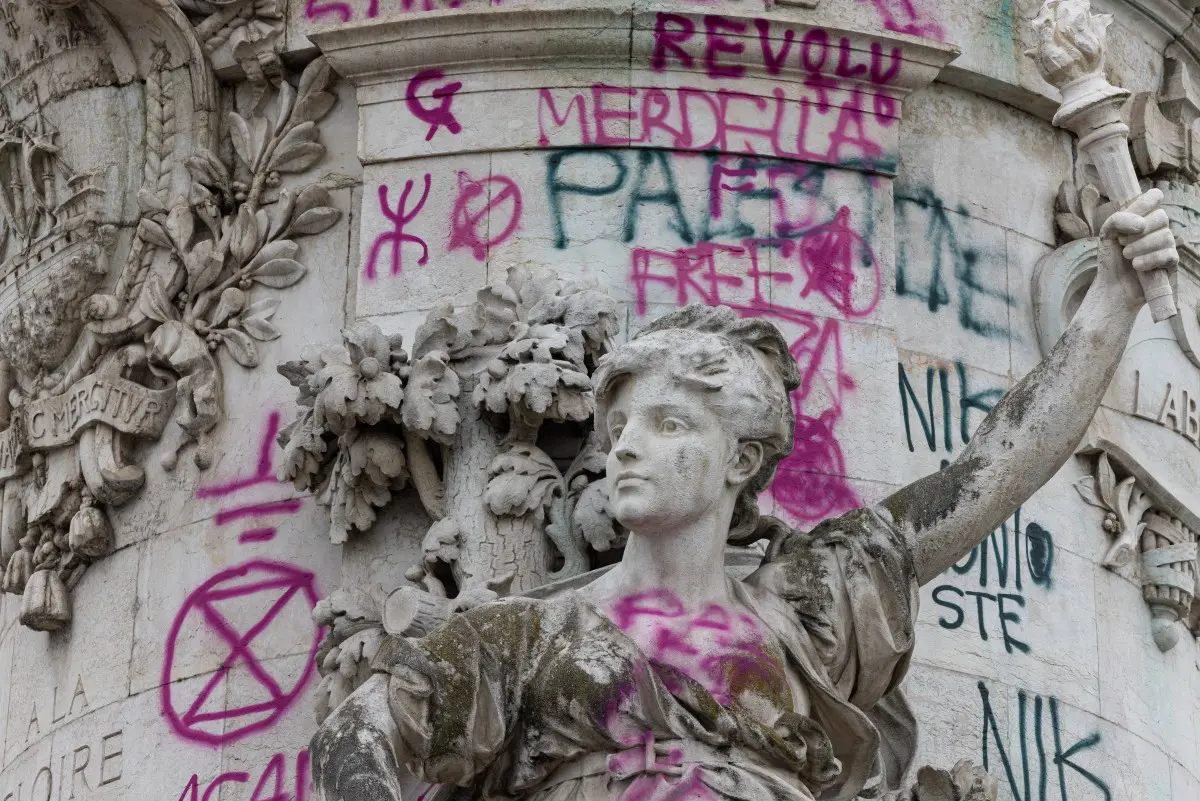
“The best response to the violence is not hatred, but the daily courage of those who continue to believe that ideas are fought with other ideas. Never with violence.”

The European Conservative’s Paris correspondent spoke to Italian Il Giornale on the evening of the French election—about the ‘Republican Front,’ the French electoral system, the massive scare campaign portraying the Rassemblement National as a ‘fascist danger,’ and what to expect from a Leftist government.
Today’s victory is that of the Republican Front, which has manifested itself in an alliance between the radical left and Macron, with a policy of mutual withdrawals. There will certainly be no difficulty for the Left to form an alliance with the progressive Macronists, despite formal protestations of opposition.
I’m not sure that the electoral system is entirely to blame. Obviously, proportional representation would provide a more accurate picture of the state of the political forces. But the problem is not just institutional: it is above all ideological. Between the two rounds of voting, there was a blitz of ideological hype to portray the RN and its allies as the worst kind of horrors, with the media giving their unconditional support.
The programme of the New Popular Front, which Jean-Luc Mélenchon wants to see implemented in full, is an extreme danger for France, and some leading figures from the European institutions, who interfered to give their opinion during the campaign, have shown a guilty blindness in promoting a force that brings back the worst excesses of socialism and communism.
If the New Popular Front becomes the linchpin of the next government, we will be faced with an outrageously immigrationist policy, and a lax approach to security and the judiciary—even though the French people have twice put the RN at the top of the votes, precisely because it listened to their anxieties on these issues. What a paradox.
We can also expect an irresponsible social policy, with, for example, an increase in the minimum wage to €1,600, which will be unsustainable for the majority of companies. And what about societal progressivism? The New Popular Front, for example, is campaigning for the freedom to change gender simply by making a declaration at the town hall.
For the European elections, as for the 1st round, crime, immigration and purchasing power were among the major concerns of the French. But in the second round, voters listened to the media arguments that were injected in large doses to prevent any victory from the RN, which was portrayed in a largely fantasised light—though this party could have addressed their main problems on these matters.
Clearly, there are weaknesses on the side of the RN: a line that is not always clear, with numerous U-turns on the programme and divergences in communication, a difficulty in convincing people of its competence and its ability to lead the country. It has also suffered from incomplete alliances: the split in the Republicans has allowed it to benefit from only some of the allies it could have had by its side. But the media’s steamrolling of the “fascist” danger has been so intense, with an incredible bunch of untruths said about Jordan Bardella’s party, that it should put the RN’s intrinsic and real weaknesses into perspective.
In any case, Macron has emerged from this election weakened, but his political skill has enabled him to limit the damage thanks to the policy of alliances and withdrawals put in place with the far left.
The president of the RN, Jordan Bardella, has confirmed that a new conservative group with the RN will be set up at European level on July 8th. In France, the Rassemblement National’s objective is now to win power in 2027. In a way, the policies that the Left will be pursuing over the coming months will make their task easier.
This is the English version of an interview published on July 8th, 2024 by Il Giornale. It appears here with kind permission.
